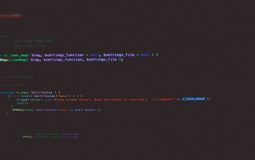The value of the yen has recently experienced notable fluctuations, mostly influenced by Japan’s recent election results. This is due to speculation over potential policy changes by the Bank of Japan, particularly its ultra-loose monetary policy. This yen volatility, driven by Japan’s political landscape and global economic factors, has drawn significant attention from foreign exchange markets throughout the world. Events like these illustrate what is forex the dynamic trade of currencies influenced by shifts in global politics and economic policy. Understanding this context explains the essentials of how Japan’s election results affect the yen and why the BOJ might consider changing course.

Japan’s Election Outcome and Its Impact on the Yen
This recent election victory for the ruling party of Japan gives the current government an advantage in economic and financial policies. However, this victory fuels expectations about the next steps the Bank of Japan may take since political stability may create an opportunity for policy changes. BOJ policy has remained particularly accommodative compared with other major central banks, which have been tightening their policies over the last few years.
The yen’s weakness since the election reflects concerns over how much further the BOJ can act before causing unintended economic consequences for Japan. What’s more, that wouldn’t change everything immediately, but markets speculate that the BOJ will take another look at ultra-low interest rates or, at any rate, might take another look at its stance on bond-buying programs with the yen stable.
The Role of the Bank of Japan and Its Unique Policy Stance
The BOJ has been among the most dovish central banks for an extended period. It has aimed to spur growth and combat deflation by maintaining near-zero rates and pursuing heavy asset purchases, while most of its peers have recently adopted a hawkish stance to contain surging inflation. The BOJ has remained firm in its stance that growth needs to be sustained in a low-inflation environment.
This approach has been beneficial for Japan’s export-driven economy, though it raises the cost of imports. Following the recent election victory, the government may try to press the BOJ to rethink its policies in the wake of the current global economic challenges. Most importantly, all eyes are on whether the BOJ would adjust its approach toward exchange rate management, as further yen falls have domestic and international implications.
What is Forex?
Understanding yen fluctuations involves learning about forex. Forex, or foreign exchange, is the global market where currencies are bought, sold, and traded. This is a very dynamic market that runs for 24 hours, influenced by economic data, geopolitical events, and central bank decisions. For Japan, this recent election result might mean a change in BOJ policy, which is creating ripples in the forex market and not just on the yen but also on currency pairs where the yen is involved.
Factors Influencing the Yen’s Decline
The recent easing of the yen is a product of both external forces and domestic policy decisions. Some key elements framing its present path include:
-
Interest Rate Differentials
Major central banks like the Federal Reserve and the European Central Bank are increasing interest rates in their respective battles with inflation; thus, the interest rate differential between Japanese assets and foreign assets widens. Consequently, the appeal of Japanese assets has declined, leading investors to move their capital elsewhere, thereby weakening the yen.
-
Global Economic Conditions
Ongoing global economic uncertainty, including recession and inflation fears, influences investor psychology and risk perception. Historically, such conditions have often benefited the dollar at the yen’s expense.
-
Japan’s Trade Balance
Another aspect is Japan’s trade balance situation. A weak yen normally favors exports, as Japanese goods become cheaper for foreign buyers. This, at the same time, however, reflects an increase in the cost of imports wherein Japan is especially dependent, especially on energy and thus maintains a delicate balance to keep in view while framing policy by the BOJ.
Speculation on Potential BOJ Policy Changes
The BOJ policy has remained unchanged for some time, but the recent election result has raised the possibility of change. Possible policy changes include:
-
Adjusting Interest Rates
Even modest rate increases by the BOJ will make the yen even stronger. Such moves risk crippling the recovery of Japan’s economy and even running the risk of driving inflation into negative territory, a prospect Japan has tried by all means to avoid.
-
Scaling Back Asset Purchases
The BOJ has aggressively purchased bonds and other assets as a means of keeping rates low. This could be scaled back, signaling a shift toward tightening; this, however, has again got to be done with much care for the turbulence in the financial markets.
-
Intervening in the Forex Market
The BOJ might also resort to intervention in the forex market with the aim of stabilizing the yen. Though it usually does this under very extreme conditions, any kind of forex intervention will be fairly complicated and might have wide ramifications both for the yen and for the overall market.
Each approach involves trade-offs, making this a crucial area for the BOJ’s next steps over the coming months.
Global Forex Market Reactions
Forex markets are typically sensitive to central bank decisions, particularly those made by influential ones like the BOJ. If the market somehow catches a whiff that its policy may change, trading volume and volatility jump. With the recent election in Japan, forex traders have been studying every utterance from the BOJ, along with economic data, for any sign of whether the yen’s slide will accelerate further or bounce back.
The yen has been one of the most traded currencies in recent weeks as forex traders speculate on possible BOJ policy adjustments. This highlights the yen’s influence in the forex market and how even the most minute shifts in monetary policy can send massive ripples through the market. Anticipating the BOJ’s actions offers clear insights into the movements of the yen and possible forex trading opportunities.

How Japan’s Election Result Affects Other Asian Markets
The outcome of Japan’s election, combined with the decline of the yen, has extended beyond Japan’s borders to reach other Asian markets. A weak yen makes Japanese goods more affordable, potentially affecting other Asian exporters, especially in South Korea and China. In return, the two nations may make some policy adjustments to retain their competitiveness, and the ripple effects can be felt across the region.
Besides, a major economy like Japan spreads currency fluctuation effects globally, and changes in the yen consequently elicit responses in the central banks of neighboring countries. Inter-dependency here means that forex markets significantly influence economic stability throughout the whole region, with the decisions of the BOJ possibly pushing the broader trends in the Asian financial landscape.
Key Takeaways for Forex Market Participants
The relevant factors driving the yen offer forex traders insights into market trends and trading opportunities. Key points not to be missed:
- Keep an Eye on BOJ Announcements: BOJ policy is a major factor influencing yen price movements. Releasing a statement and changing policy may give a hint on the direction in which the currency will head.
- Monitor Global Economic Indicators: Events such as inflation rates, GDP growth, and trade balances give excellent signals with respect to market sentiment and the likely movement of currencies.
- Understand Interest Rate Differentials: The differential often explains yen price fluctuations. A divergence or convergence in these spreads, therefore, presents potential opportunities or risks in the forex markets.
All these factors considered, the stance of the BOJ and the performance of the Japanese economy provide a clear insight into movements of the yen and possible forex trading opportunities.
In Retrospect
The recent election outcome in Japan has rejuvenated debate about the future of the yen and the role of the Bank of Japan in economic stability. While the BOJ has been persistently sticking to its ultra-loose monetary policy, looming political stability with growing economic challenges might force it to change its mind. It is of utmost importance for both forex traders and global investors to be able to understand these dynamics and their impact on the yen in order to navigate today’s turbulent financial environment.
Every further move by the yen will continue to keep the BOJ’s subsequent steps under great scrutiny, and the potential to change policy settings is likely to keep the yen in key focus across Forex markets worldwide until it finally stabilizes. Whether this central bank in Japan decides to stand still or decides to bring in partial changes, the outcome for the yen, the Japanese economy, and the wider financial community is bound to be one of much significance.








